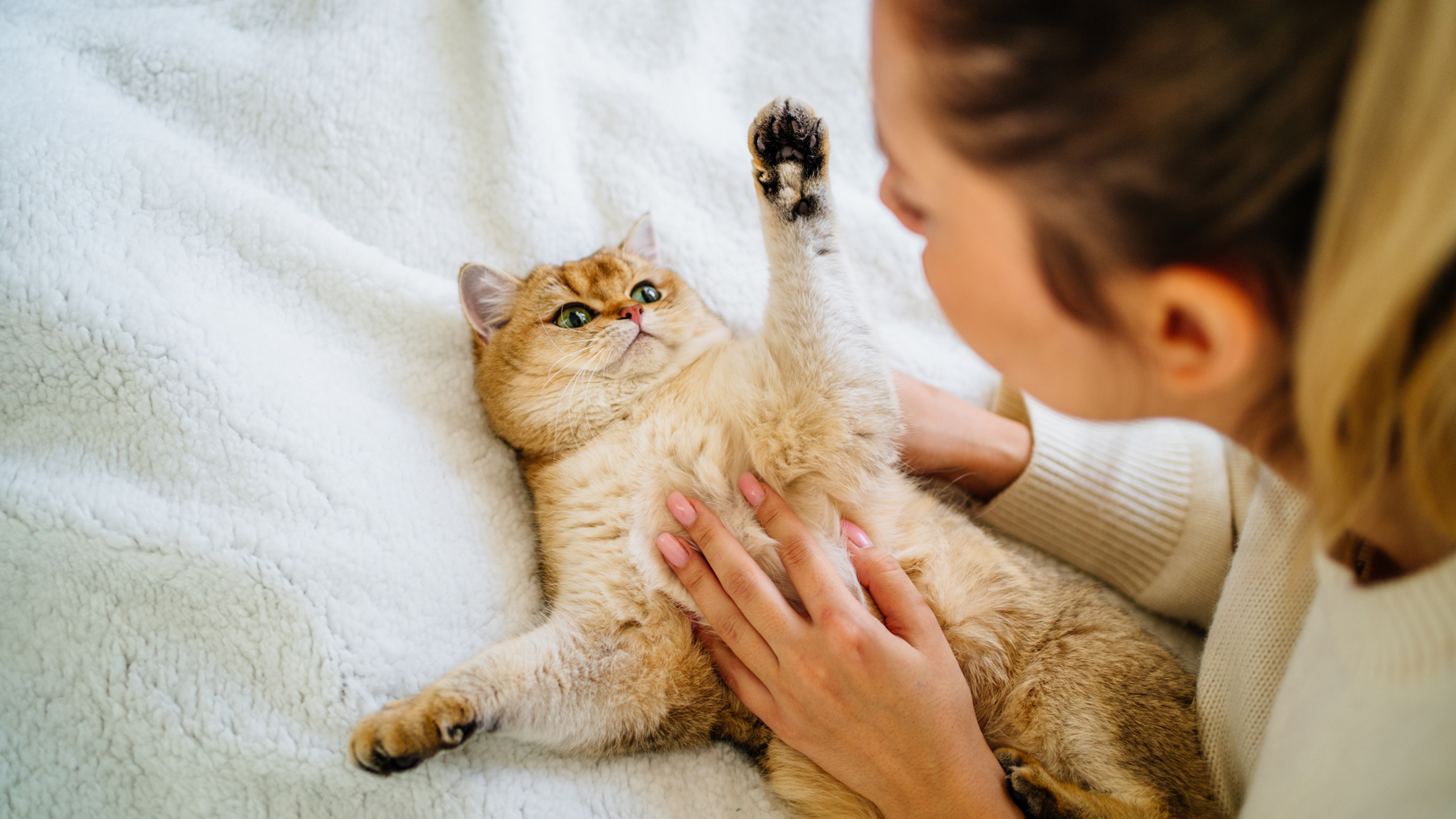Feline behaviorist shares six do’s and don’ts for cat playtime — they'll help keep your cat happy
Cat expert reveals what to do (and what not to do) to keep your feline friend engaged and happy

Any cat parent will know that most cats are a bundle of curiosity and energy, meaning playtime is a crucial part of their lives. Play serves as more than just a pastime for cats; it's a window into their natural hunting instincts, a source of mental stimulation, and a way to keep them physically fit.
That said, mastering how to play with a cat isn't a one-size-fits-all endeavor, even if your house is decked out with all the very best cat toys. To truly make the most of these sessions and ensure both you and your cat have a blast, there are some essential guidelines to follow.
And who better to guide us through these than Amanda Campion CAB, a clinical animal behaviorist with a passion for feline companions? Campion shared six things you should ensure to do during cat play and six things you shouldn't do on TikTok, helping owners turn play into an engaging, rewarding, and joyful experience for both them and their beloved cats.
Whether you're a seasoned cat owner or a novice, these tips will help you create an enriching play environment that keeps your feline friend content, active, and mentally stimulated. Watch or read on to find out her expert advice...
@kittysittycatbehaviour ♬ Chill Vibes - Tollan Kim
Do’s:
- Scheduled Play Sessions: Cats thrive on routines, so schedule regular and predictable play sessions. High-energy toys like feather wands or Da Bird toys are excellent choices as they mimic the unpredictable movements of prey animals.
- Cue Words: Use consistent cue words to signal the start and finish of play. These cues help your cat understand what to expect and when it's time to wind down.
- Allow a Win: Prevent frustration during play by ensuring your cat gets a chance to "win." For example, if you're using a laser pointer, round up the session by pointing it at a soft object your cat can "capture" with its mouth.
- Winddown: Divide play into distinct phases: the start, the active play, and the winddown. During the winddown phase, engage in less energetic play to signal the end of the session.
- End with Food: Cats have a natural sequence of play, kill, hunt, and eat. Satisfy their instincts by offering them food at the end of playtime.
- Toy Rotation: Keep your cat's interest alive by rotating their toys regularly. After each play session, put the toys away, especially those with long strings, for safety reasons. Introduce different toys during subsequent playdates to keep things exciting.
Don'ts
- Avoid Using Body Parts: Never use your hands, feet, or any other body parts for play, even when dealing with kittens. This practice can lead to inappropriate play and, as cats grow older, may result in aggression.
- No Clothing Climbing: Don't encourage your cat to climb you using items of clothing. Such interactions can lead to accidents and won't be enjoyable for either you or your cat.
- Don't Tease: Teasing your cat during play can be stressful for them. Always allow them to "win" during play sessions to keep things enjoyable and prevent frustration.
- No Throwing: Refrain from throwing toys at your cat, regardless of how soft they are. Cats prefer to engage in the stalking and pouncing themselves, as it mimics their natural hunting behaviors.
- Properly End Play: Never abruptly end a play session without a winddown phase and the appropriate cue word to signal the conclusion. Sudden endings can confuse your cat and may lead to aggression.
- Use Lasers Wisely: If you use a laser pointer, ensure your cat has a satisfying conclusion to the game by allowing them to "catch" the "prey" at the end. Ending on a high note is crucial for their enjoyment.
Not only can Campion's tips helo to strengthen your bond with your feline friend, but they will also contribute to their overall well-being, keeping them physically and mentally stimulated.
PetsRadar Newsletter
Get the best advice, tips and top tech for your beloved Pets

With over a year of writing for PetsRadar, Jessica is a seasoned pet writer. She joined the team after writing for the sister site, Fit&Well for a year. Growing up with a lively rescue lurcher kindled her love for animal behavior and care. Jessica holds a journalism degree from Cardiff University and has authored articles for renowned publications, including LiveScience, Runner's World, The Evening Express, and Tom's Guide. Throughout her career in journalism she has forged connections with experts in the field, like behaviorists, trainers, and vets. Through her writing, Jessica aims to empower pet owners with accurate information to enhance their furry companions' lives.
